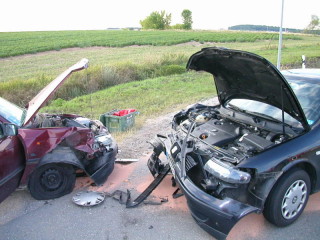Released March 22, 2016 | Full Decision [Document Bank]
This case concerns a single-vehicle accident in which the plaintiff sustained serious injuries. The plaintiff was a passenger in a car owned by his spouse. He claimed the car was driven by the defendant driver without his spouse’s consent, rendering it uninsured pursuant to s. 1.8.2 of the standard Ontario Automobile Policy, which reads:
Except for certain Accident Benefits coverage, there is no coverage (including coverage for occupants) under this policy if the automobile is used or operated by a person in possession of the automobile without the owner’s consent or is driven by a person named as an excluded driver of the automobile [emphasis added].
The defendant Jevco insurance company brought this summary judgment motion to dismiss the plaintiff’s claim. Jevco argued an insured cannot make a claim under the uninsured motorist coverage and the OPCF 44R Family Protection endorsement when a vehicle is owned by the policyholder but becomes uninsured through theft by a third party. At issue was s. 265(2) of the Insurance Act, which reads:
“Uninsured automobile,” means an automobile with respect to which neither the owner nor the driver has applicable and collectible bodily injury liability and property damage liability insurance for its ownership, use or operation, but does not include an automobile owned by or registered in the name of an insured or his or her spouse [emphasis added].
Justice Newton found “the purpose of the uninsured motorist scheme is to provide a safety net for victims injured by the actions of uninsured motorists.” He also explained that the OPCF 44R is optional coverage with ambiguous contractual wording and in being so, followed the principle that “any ambiguity must be resolved against the insurer who drafted the document” (Chilton v. Co-Operators General Insurance Co., 1997 CanLII 765).
Justice Newton held vehicles owned by an insured or an insured’s spouse, if insured, are uninsured when taken without consent and therefore occupants may avail themselves of uninsured coverage.












